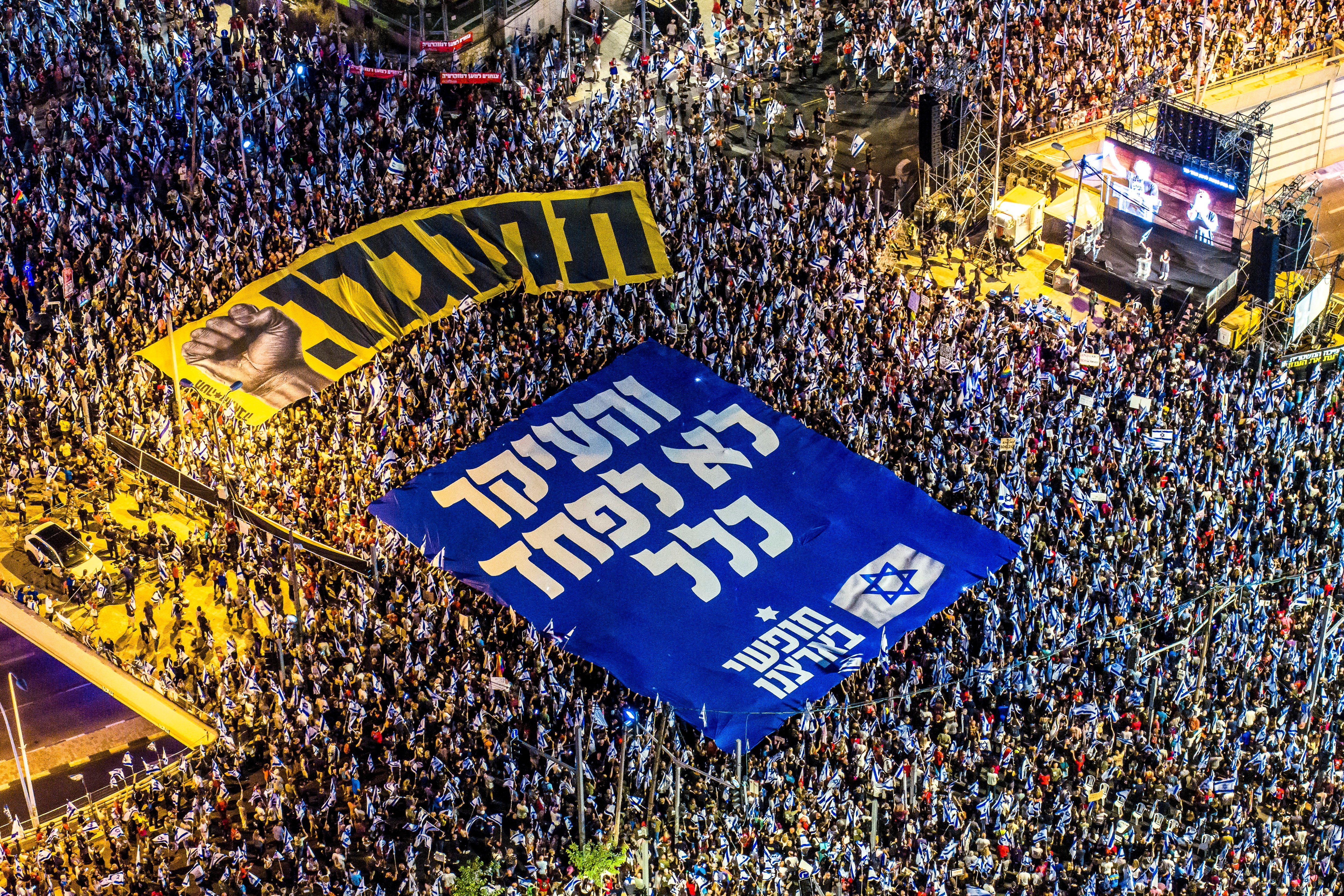150,000: Some 150,000 people took to the streets of Tel Aviv on Saturday night to oppose PM Benjamin Netanyahu's judicial overhaul plans, the biggest turnout since Bibi called a time-out on his controversial reforms back in March. The months-long protest movement — which had been faltering in recent weeks — got a second wind after Bibi sacked Tel Aviv's police chief for being too lenient with the demonstrators. Israeli lawmakers will conduct the first reading of the reforms this week.
0.2: China's consumer price index stayed flat year-on-year in June and declined 0.2% from last month, putting the world's second largest economy at serious risk of deflation. This will likely trigger interest rate cuts and calls for fiscal stimulus to awaken the economy from its post-Zero COVID slumber.
2: On Monday, the Dutch parliament will meet for the first time since the collapse of the coalition government last week. Prime Minister Mark Rutte, who’s quitting politics but will stay on as caretaker until a new election, threw in the towel after his coalition partners balked at a proposal to make the children of war refugees wait two years before being allowed to join their parents in the Netherlands.
22: At least 22 people died early Saturday in a Sudanese army airstrike in Omdurman, a major city across the Nile River from the capital of Khartoum. Since mid-April, Sudan has been in a state of de facto civil war as the army and a powerful paramilitary group struggle for power.
👉 Learn more about why the conflict erupted here and its regional fallout here.
5: Russia is
fuming at Turkey after Ankara allowed five commanders of the Ukrainian ultra-nationalist
Azov unit (sent there under a prisoner-exchange pact with Moscow) to return to Ukraine. This might affect a new extension of the Turkey-brokered agreement to export Ukrainian grain through Black Sea ports, which Moscow wants to scuttle when the deal expires on July 17.
